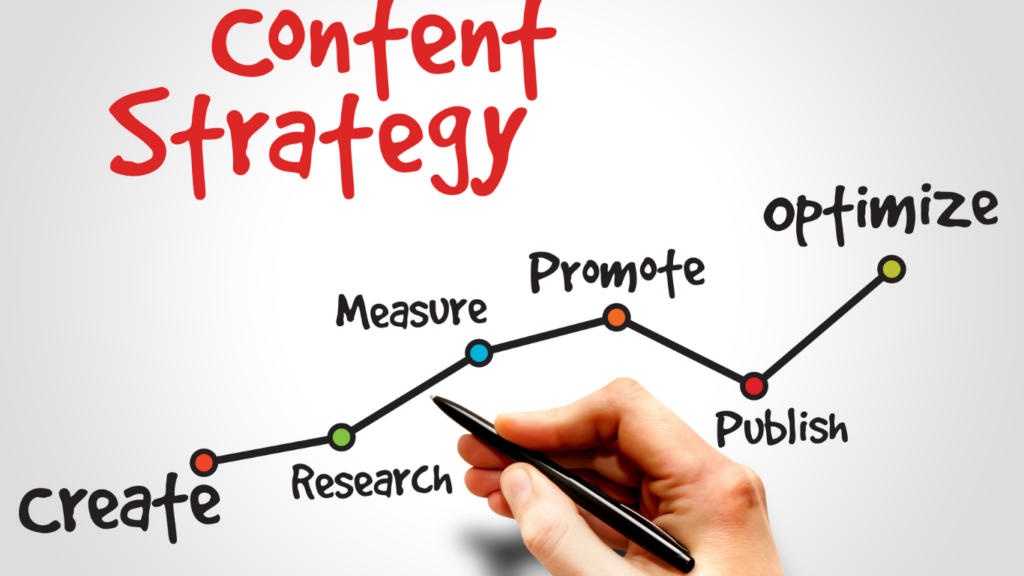Managing a website has evolved from manual coding and guesswork to a data-driven, automated process, thanks to AI. Artificial intelligence is prevalent in website management in the year 2025. It is no longer an idea of the future; rather, AI is actively assisting us in strategizing, constructing, optimizing, and maintaining websites with effortless efficiency.
Whether you are setting up a new site for your business, updating an old one, or expanding your digital footprint, AI provides unparalleled insights and tools that can save you time and substantially improve your financial returns. This guide will explain how AI can be utilized for effective website project management by providing unique strategies and advanced tools that can be utilized to your advantage.
For better understanding, we will look into the AI role in website management and divide it into five sections: planning, augmenting content, SEO analysis and performance metrics, executing automation, and monitoring and reporting.
Let us proceed into the details of using AI for effective website management.
Planning Your Website Using AI

The foundation of effective website and project management is planning and having set milestones, and with AI, this first step is as simple as it gets as it can condense hours of research into just minutes. The planning step includes goal setting, audience identification, competitor analysis, identifying gaps in the market, and so forth; all things which AI can do easily in a matter of seconds. By using AI, you can tap into intelligence that guarantees your site is relevant to the market and away from competition.
AI has proven useful in processing big data, and as such, they can analyze keyword trends alone, assess what the competition has in place, and even go as far as predicting user behavior. All this enable the user to create a solid blueprint for a dynamic website. In addition, many of these tools interface with other project management systems aiding in task and time management enabling you to check off completed milestones.
Here is how AI can assist you in your website management endeavors:
- Market Research: AI tools scan the web to identify what’s trending in your niche, giving you a clear picture of what your audience wants offering insightful information about the market.
- Industry Analysis: AI can countercheck and analyze the websites of competitors, giving the user an overview of the strengths, they pose and areas lacking in all of them enabling one to exploit every gap.
- Targeting SEO Keywords: The AI finds the most important keywords to target, which guarantees good site ranking from the beginning.
Recommended Tools
- Semrush: Powerhouse in SEO and project management, Semrush integrates AI in providing keyword suggestions, competitor data, and project tracking Semrush comes with an AI Copilot which makes task prioritization easier and thus planning is simpler.
- Ahrefs: Known for its robust backlink analysis, Ahrefs also provides AI tools for keyword-driven content planning that helps in drafting a competitive website.
- ChatGPT (With Plugins): With scraping web plugins, ChatGPT can provide summaries for industry trends or create initial site frameworks based on user’s information.
How to Get Started
- Create a website purpose (e.g., e-commerce, blog, or portfolio)
- Research keywords and competitors in the niche using Semrush or Ahrefs.
- Enter their findings into project management applications like Trello or Asana with the help of AI adding plugins, create timelines and assign tasks.
By AI-assisted planning, you lay groundwork that makes it easier to manage a website that has potential for success.
Content Creation and Optimization with AI

When managing a website, the creation of content is very important and maintaining high standards for quality and SEO guidelines is critical. Luckily, AI helps beat that challenge as it gives you the power to create descriptive articles, product descriptions, and landing pages in record time. Aside from saving time, AI makes certain that your content works with search engine systems which improves visibility.
Drafting, Headlining and text optimization are just a fraction of what AI can do in Content Creation Tools, it can find and suggest headings and prewrite whole drafts. Utilizing AI, companies evaluate top ranking pages, find patterns such as word count or density and implement those insights to your work. AI can also ensure that logos and companies are portrayed throughout the site.
Outline AI’s advantages to the content authoring process in the context of website management.
- Draft Generation: AI does the heavy lifting of drafting. You can give it topics or keywords and it will compose the first version for you.
- SEO Optimization: Meta description, placing and linking of words within the text and other functions that will raise the standing of the page assist by the AI Tools.
- Content Scaling: Updating an e-commerce website, blog or any site that requires constant changes is easy with the use of AI and bulk text creation.
Helpful Tools:
- ContentShake AI: This user-friendly tool created by Semrush allows the user to quickly generate full articles, social media posts, and more by interfacing industry SEO data with AI.
- MarketMuse: This tool is beneficial when managing content teams. MarketMuse is an AI-driven platform that creates detailed content briefs and optimizes drafts to ensure comprehensive topic coverage.
- Jasper: This is an all-around AI writing tool, known for blogging, advertising, and email writing, that lets you set the tone to fit your brand.
How to Get Started
- Locate target keywords from Semrush or Ahrefs.
- Mix the target into ContentShake AI or Jasper to compute the first draft.
- Muse on the first draft with MarketMuse by adding subheadings and preparing it for SEO.
- Polish the content and publish it.
Focus on strategy while AI maintains the flow of fresh material. AI streamlines and optimizes the content creation process, adapting it to the user’s website management needs.
SEO and Performance Evaluation Through AI

Once your website is operational, routine optimizations are essential. Running a website entail ensuring the site is visible and the users are satisfied through the use of SEO and performance evaluation strategies. AI sets a new standard by performing automated audits, finding problems, and providing recommendations in real-time, something that requires a lot of manual work without AI.
AI tools can track how a website ranks on different search engines, evaluate the speed of the pages, as well as estimate the impact of algorithm changes on your website. They provide practical guidance such as determining strategies to remove broken links and image optimization for easier competition. In addition, AI arms itself with analytics tools to provide new dimensions to the analysis of users via the tools enabling strategies to be reshaped.
The application of AI tools in SEO and performance strategies regarding websites includes the following:
- Site Audits: AI checks subpages for crawl blockages, slow response pages, and other technical problems.
- Keyword Checking: Uses AI to search for new keywords that should be targeted and suggest them in addition to tracking the ranks of the keywords.
- Performance Insights: Determining the level of immersion of the users through bounce rate and session duration among other aspects.
Recommended Tools
- AlliAI: This tool integrates with CMS platforms to automate sitewide SEO tasks, including tag, header, and code optimization.
- SE Ranking: This is a comprehensive suite that includes SERP analysis, AI-powered content generation, and real-time optimization scoring—very useful for agencies or solo operators.
- Google Search Console Enhanced with AI: Use Google’s free tool with AI add-ons like Semrush Copilot for better insights.
How to Get Started
- Run an SEO audit using either AlliAI or SE Ranking.
- Implement recommendations to resolve issues such as duplicate content and slow load speeds.
- Review performance on a weekly basis, making adjustments per AI-generated reports.
A website becomes easier to manage with the help of AI two-fold; both for SEO analysis and performance assessment, allowing for proactive adjustments that maintain competitiveness.
Automating Routine Tasks with AI

Repetitive website management tasks include link building, social media posting, and maintaining older content. The automation will decrease time spent on these mundane tasks while maintaining uniformity. That way, you can concentrate on essential strategies while the AI takes care of the underbelly.
AI scheduling, post creation, article revision, and basic customer query chatbot AI improve engagement. These enhancements significantly increase workflow efficiency and website professionalism and responsiveness.
Here’s how AI automates tasks when managing a website:
- Social Content Management: AI can schedule and posts content across platforms, optimizing timing for engagement.
- Content Updates: Tools can refresh old pages with new keywords or data, while keeping them relevant.
- Link Building: AI identifies link opportunities and automates outreach emails.
Recommended Tools of Frase and Writesonic for Further Assistance
- Frase: goes beyond content writing, doing the heavy lifting of researching and optimizing while drafting and suggesting updates to existing content pages.
- Writesonic: The AI will assist with drafting speeches, social media and email posts, as well as articles. To top it off, there is a powerful rewriter on board to keep the text fresh and from sounding overly robotic.
- Buffer (with AI Integration): Use alongside AI assistants to automate the scheduling of social media posts and analyze their performance with Buffer.
How to Get Started
- Identify and list tasks that you consider repetitive within your website management workflow, such as: posting updates or verifying active links.
- Configure Writesonic to automatically craft social media posts and integrate Buffer for scheduling.
- Frase lets you seek and modify obsolete pages on a monthly basis.
Managing a website becomes easier with AI. You can increase your efforts without the risk of burnout.
Monitoring and reporting with AI

Website management comes with the need for continuous monitoring, which allows for progress tracking, issue spotting, and strategy adjustment. With AI, the collection and analysis of data along with trend interpretation touches new heights with its automation. You are always at a better chance with AI because it ensures you are always a step ahead of hindrances.
AI has made it possible to monitor everything from traffic to keyword usage and its associated functionalities. With AI, it is easier to alert users on sudden ranking drops, monitor keyword performance, and more. These AI systems are also tasked with generating reports which can be used to spell out successes or setbacks.
Such have been covered with the specific areas AI focuses on dealing with monitoring and reporting:
- Real Time Alerts: AI ensures immediate notification if there is critical change such as downtime periods or ranking shifts.
- Tracking Performance: AI tracks KPIs achieved from traffic, conversions, and other user engagements within specified periods.
- Competitor Insights: AI measures performance of the site against its competitive and suggests areas for improvement.
Recommended Tools
- Semrush Copilot: Assists users to tracks SEO metrics, suggests hidden keywords and delivers personalized recommendations based on the site data.
- MarketMuse: offers assistance on content monitoring such as webpage performance, topical clusters, and helps users through guidance on what to update next.
- Google Analytics (with AI Plugins): Use AI-powered ChatGPT technology to create custom reports and forecasts for Google Analytics.
How to Get Started
- Set up Semrush Copilot or MarketMuse to oversee your website’s crucial KPIs.
- Set reports to be generated weekly, so you can analyze the traffic, rankings, and advanced AI suggestions.
- Implement recommendations, like improving pages with low traffic or shifting to more relevant keywords.
When monitoring and reporting are automated through AI, website management transitions from reactive maintenance to active strategy development focused on sustainable growth.
Conclusion

The days of needing AI as an option are over; it’s a must-have for anyone serious about managing a website in 2025. Planning, content generation, SEO, automation, and monitoring are just a few processes that AI tools facilitate in streamlining website project management. By using Semrush, ContentShake AI, AlliAI, Frase, and MarketMuse, you improve performance, save time, and increase your chances of generating wealth.
That said, AI is not a substitute. The best results come from combining AI with your vision and creativity. You will find that managing a website is not only rewarding but also less burdensome as you execute the strategies. Start small—try one tool or process—then grow as the benefits show themselves. Enjoy thriving in the digital world and mastering website management with AI technology!






